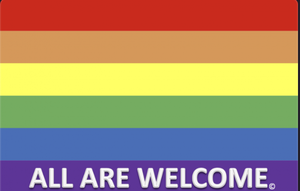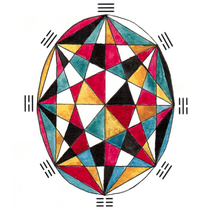Hey! You are Human! You are Creative!
I also often hear people definitively deny their ability to create.
How often have you heard someone (or yourself!) say "I can't draw" or "I'm not creative"? I hear this all the time both professionally and in my everyday life. Many people have lost confidence in even the possibility that they are creative. In a therapy session we can work with these beliefs, but I truly think this is a wider issue in our culture. I have a lot of feelings about it....
This 3-part blog series on Intentional Creativity will cover some thoughts I've had on:
- Why adults avoid creating
- Why making things is important and good for you
- How you can empower yourself to find your creative mojo
Okay, this series title: "Intentional Creativity," what am I talking about? Isn't everything we do "intentional?"
What I mean here is the process of deciding to create with the intention of engaging with the self -- Creating for the sake of you.
What I am not talking about is creating art with the intention of creating a product for others to evaluate as good or bad. The difference here is in the purpose of the creating.
So now you know what I mean and do not mean, let's get into it.
I've never met a person who was not capable of creating meaningful expressions.
By nature of having thoughts in your head and feelings in your soul, you have the capacity (and likely the need) to create.
And when I'm referring to "creating" and "art" what I'm talking about is not only visual 2D art, but also making music, expressing through movement, writing, poetry, gardening, cooking.... I often reference 2D art in my examples, but there are so many ways to express if you allow yourself to get to know your self. We'll get back to this later.
"But, I'm Bad at Art"
If you've ever uttered the words, "I'm not an artist" or "I can't draw" or "I'm bad at art," likely you've had some experience of creative shaming in your past.
What I mean here is that somewhere along the line, someone might have told you that your art wasn't "good." Sometimes this happens in very subtle ways -- Maybe a parent was dismissive when you were very proud of a creation. Maybe a friend told you your picture of a cat looked like a dinosaur. Maybe you had an older sibling who everyone said was "good" at art, and the silence around your own art meant that you were "bad" at it. Whatever the case, because our art is so personal, we sometimes interpret these criticisms as personal inadequacies.
There's a narrative in our culture that some art is "bad" and other art is "good." There's also a narrative that some people are just "good" at art and others aren't. There is a lot written on this subject, but I think what most people really mean here is that some art is "marketable" while other art is not. To consider yourself an "artist" in our culture, people expect you to have perfected a medium, and to be producing in that medium with the general public validating that your products are "good."
Sometimes people look at art and think, "well, my kid could have done that." Sure! They probably could have, and likely would have enjoyed the freedom and messiness of making it. And you could have as well! That's really the amazing thing about creating. Anyone can do it -- What is relevant is whether you enjoy the process and that it is an authentic expression.
"But Art is for Kids..."
Why is it so hard for many adults to imagine making art? And especially the thought of making art in front of another human being!
Here's the thing. As humans, we have a deep need for storied imagery. People understand that children learn and develop through play and imagination. Until kids lose confidence in their art abilities, nearly all children express themselves visually and delight in the feel of the art materials on their fingers. But what happens to our imagination and ability to play as we become adults?
We see the world in light and color. We imagine the future. We clearly love consuming images and stories through media and entertainment. Yet in our culture so often we only express our experience through words in everyday conversation.
There seem to be a lot of reasons adults don't feel comfortable making art. One reason is that many adults likely have not touched an art materials since they were children. They believe their art is at a "child's level" and there is some embarrassment around showing others what they see as an inadequacy. This is very related to both creative shaming (mentioned above) and the intense vulnerability related to expressing artistically.
There's something else though, and this is important. Art materials are powerful. Maybe that sounds silly to you at first, but it's true. The visual and tactile sensation of running chalk across a page can connect you with your early remembered experiences of making art, and you can feel emotions you haven't felt in many years. Some of these feelings may be related to early feelings that are asking to be looked at. It's an amazing tool that I use with people as an art therapist, but this can be scary sometimes for adults and can cause them to retreat from art. More on the power of creating in our next blog post.
Making art is vulnerable and can be scary, but as an adult, you get to use art materials intentionally, to help you let loose, destress, connect with your emotions and inner child, and PLAY.
Sometimes this is overwhelming and you might need help sorting through all of your history and emotions. Consider looking for an art therapist to help you! For ideas on how to consciously look for a therapist check out this blog post.
Here's the Point:
- You are creative!
- Creating can be vulnerable, but aren't most worthwhile things?
- Art-making/Creating is for adults too!
- Art-making is powerful and can be used intentionally to help explore emotions and identity.
- Successful art is a true expression, not something "good" or "bad" aesthetically.
And for today I'll leave you with this question:
Feel free to leave your thoughts or questions in the comments! I will always respond.
In the next part of this series we will look at the physical, cognitive, emotional, and spiritual benefits of creating. Basically: Why make art?
| -Sarah Klein, MA, LPCC Art Therapist and Co-Owner at Open Mind Holistics Learn more about Sarah in this blog post, or on her bio page. |
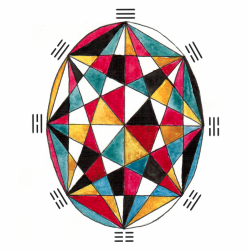
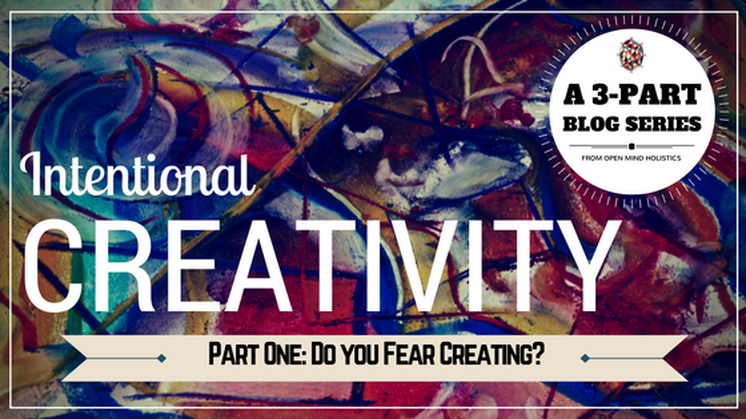
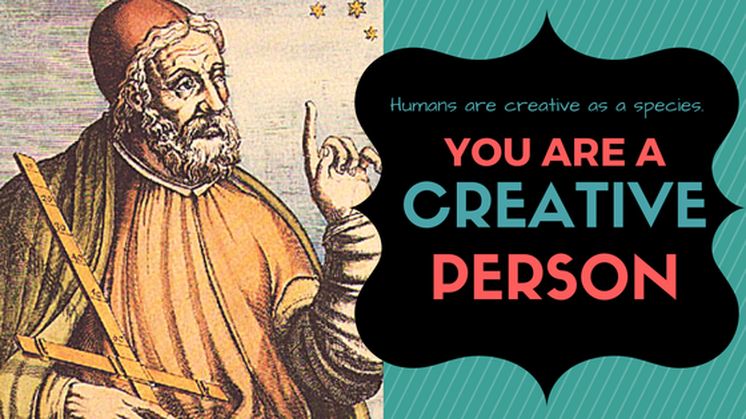
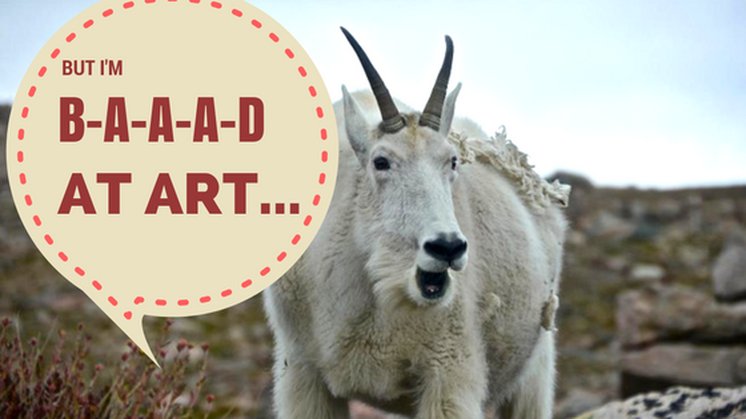
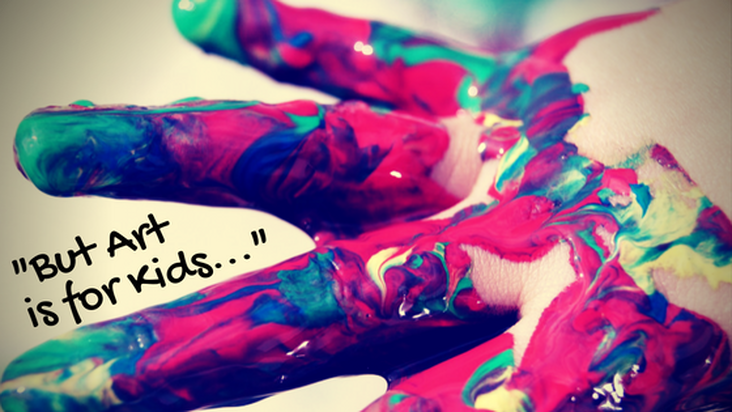
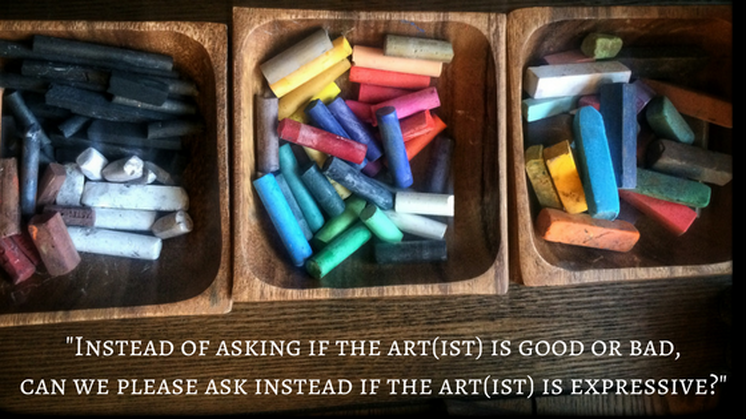

 RSS Feed
RSS Feed

